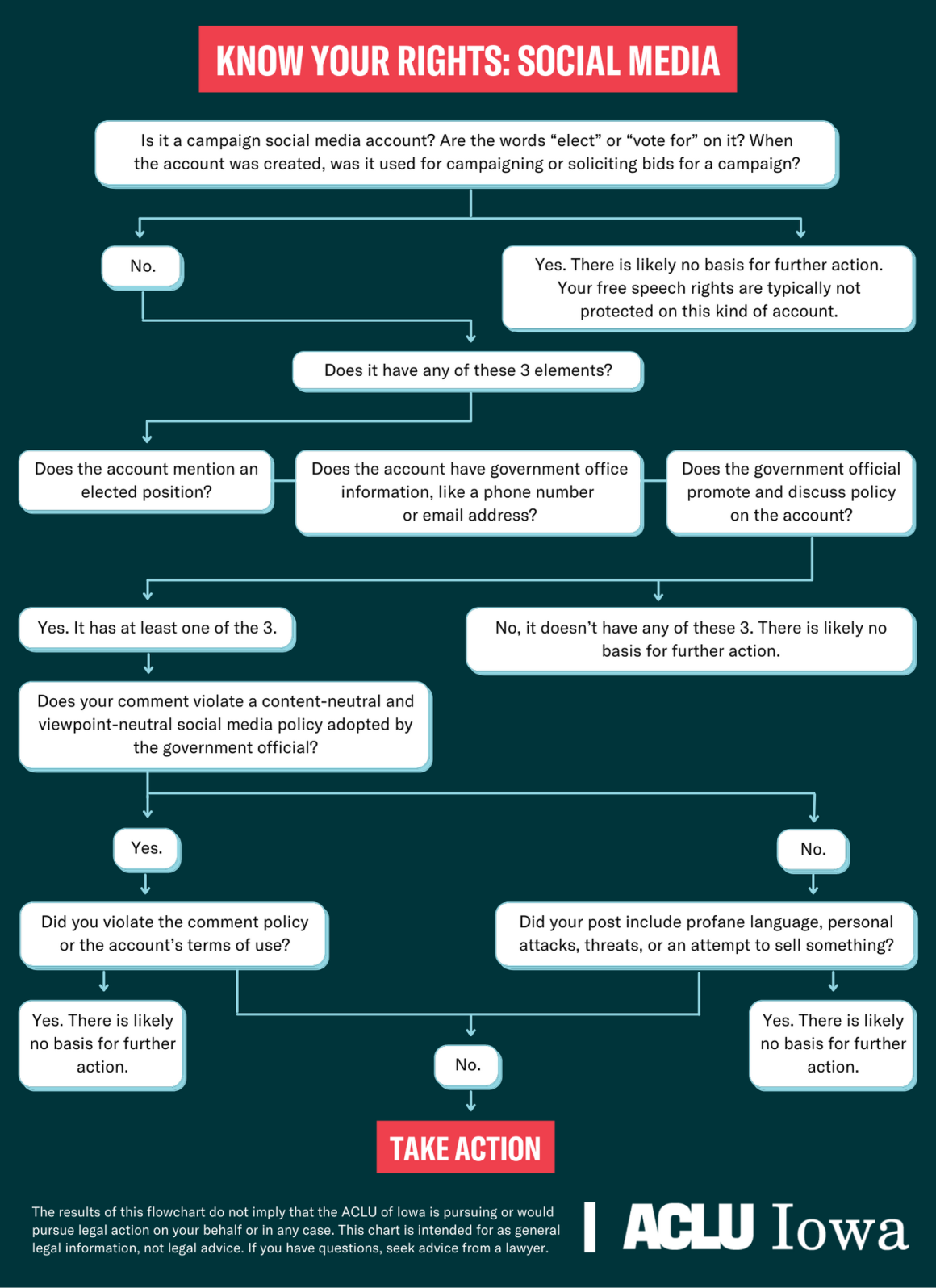Just because a public official disagrees with your post or comment doesn’t mean they can block you or delete your comments online. As our democracy expands to online platforms, our First Amendment freedoms must remain protected—and that includes on social media.
More than ever, elected officials and government agencies are using social media to communicate with their constituents and the general public. In fact, the Supreme Court has recently recognized that Facebook, Twitter, and Zoom can be “the modern public square,” where constituents can "petition their elected representatives and otherwise engage with them in a direct manner."
Has a public official blocked you, deleted your comments, or censored your social media?
If a public official uses their account to communicate with the public in their role as an elected official, then their page or account is subject to the First Amendment, which protects free speech. That means they cannot engage in most forms of censorship such as blocking someone or deleting someone’s comments simply because of the subject or their opinion.
That's because courts generally classify official social media pages for elected representatives and government organizations as "public forums"—meaning they have some of the strongest protections for free speech guaranteed by the First Amendment.
Last updated April 2022
